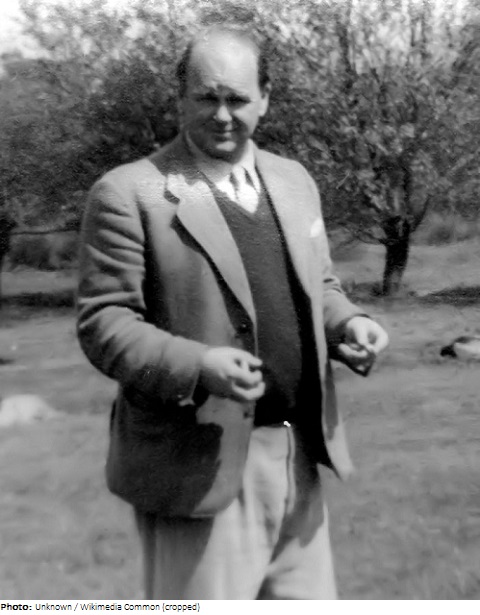Peter Scott

Biographical information
| Roles | Competed in Olympic Games • Administrator |
|---|---|
| Sex | Male |
| Full name | Peter Markham•Scott |
| Used name | Peter•Scott |
| Born | 14 September 1909 in London, England (GBR) |
| Died | 29 August 1989 in Bristol, England (GBR) |
| Affiliations | Oxford and Cambridge Sailing Society, (GBR) |
| Title(s) | Sir |
| NOC |  Great Britain Great Britain |
| Medals | OG |
| Gold | 0 |
| Silver | 0 |
| Bronze | 1 |
| Total | 1 |
Biography
Sir Peter Scott was the son of explorer Robert Falcon Scott, known affectionately as “Scott of the Antarctic”, who came close to becoming the first man to reach the South Pole in March 1912. Scott was less than three-years-of-age when his father died. In fact, shortly before his death, his father told his mother, the sculptor Kathleen Scott, to make sure their son became interested in natural history, which he did and the younger Scott went on to become a champion for wildlife conservation.
The godson of Peter Pan creator J. M. Barrie, Scott was educated at Oundle School and then Trinity College, Cambridge. It was while still an undergraduate that Scott was first attracted to wildfowl and wildfowling, and showed a great ability as a painter of geese and ducks. In the 1930s he also wrote several books about wildfowl. During World War II, Scott served as a lieutenant-commander with the Royal Naval Volunteer Reserve and was three times mentioned in dispatches, and honoured with the DSC (Distinguished Service Cross) and Bar.
Having assembled his own collection of wildfowl before the War, Scott set up the Severn Wildfowl Trust (now known as the Wildfowl and Wetlands Trust) in 1945 with probably the finest collection of wildfowl ever accumulated. Scott joined the Council of the International Union for Conservation of Nature and Natural Reserves in 1960, and from 1963-85 was chairman of their Commission that looked after endangered species. In 1961 Scott helped found World Wildlife Fund (WWF), serving as chairman from its formation until 1982, and was responsible for the design of its famous panda logo.
For more than 25 years, Peter Scott was a television personality thanks to the wildlife programme Look that he presented from his Gloucestershire home from 1955-81. It was the first nature programme on BBC television, and was an inspiration to children and adults of the era. His television work was pioneering and inspired the likes of Sir David Attenborough. Setting conservation and television aside, Scott was also a competent sportsman. He was a keen and successful yachtsman and glider. He was the national gliding champion in 1963 and was a notable dinghy sailor, winning the International 14-foot Championship for the Prince of Wales Cup three times, in 1937-38, and 1946. He also won a bronze medal at the 1936 Olympics. Scott was president of the International Yacht Racing Union (now World Sailing) from 1955-69. Scott was also a championship-standard figure skater. He was knighted in 1973, and made a Companion of Honour and a Fellow of the Royal Society, both in 1987.
Results
| Games | Discipline (Sport) / Event | NOC / Team | Pos | Medal | As | |
|---|---|---|---|---|---|---|
| 1936 Summer Olympics | Sailing |  GBR GBR |
Peter Scott | |||
| One Person Dinghy, Open (Olympic) | 3 | Bronze |
Organization roles
| Role | Organization | Tenure | NOC | As | |
|---|---|---|---|---|---|
| President | World Sailing | 1955—1969 |  GBR GBR |
Peter Scott |
Special Notes
- Listed in Olympians and IOC Members Serving as President of an International Federation (IF) (ISAF (IYRU) president 1955-1969)
- Listed in Olympian Members of the Nobility (Sir)